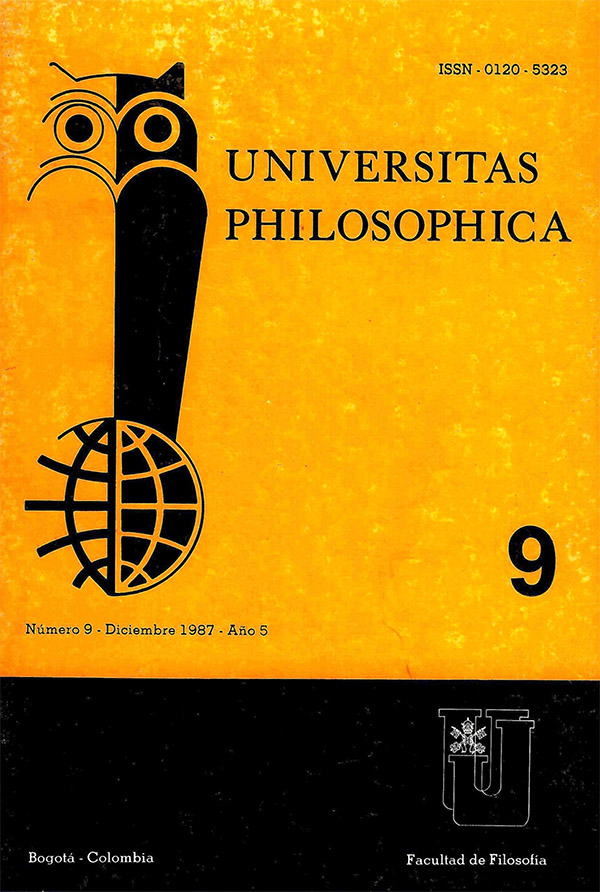Abstract
En el presente artículo, su autora —tomando como base la obra de Xavier Zubiri, y especialmente su libro póstumo El hombre y Dios— examina la manera como Dios puede ser experimentado en la realidad humana.
Después de una breve introducción en donde se presenta el problema,se pasa a considerar la situación del hombre como ser que es"en" la realidad y las consecuencias que de ella se derivan. Con base en esto, se expone y justifica la dimensión trascendente inherente al ser del hombre y su necesaria consecuencia: el carácter problemático que la realidad tiene para él. Y es precisamente en el núcleo de dicho problematismo donde se experimenta la necesidad de fundamentarse en una realidad absolutamente absoluta: Dios, solución al enigma de la realidad.
Finalmente, el problema de la esencia de la religación queda planteado como la "tensidad" teologal entre el hombre y Dios, que se resuelve a su vez en voluntad de verdad, que es, en última instancia, voluntad de fundamentalidad.
This journal is registered under a Creative Commons Attribution 4.0 International Public License. Thus, this work may be reproduced, distributed, and publicly shared in digital format, as long as the names of the authors and Pontificia Universidad Javeriana are acknowledged. Others are allowed to quote, adapt, transform, auto-archive, republish, and create based on this material, for any purpose (even commercial ones), provided the authorship is duly acknowledged, a link to the original work is provided, and it is specified if changes have been made. Pontificia Universidad Javeriana does not hold the rights of published works and the authors are solely responsible for the contents of their works; they keep the moral, intellectual, privacy, and publicity rights.
Approving the intervention of the work (review, copy-editing, translation, layout) and the following outreach, are granted through an use license and not through an assignment of rights. This means the journal and Pontificia Universidad Javeriana cannot be held responsible for any ethical malpractice by the authors. As a consequence of the protection granted by the use license, the journal is not required to publish recantations or modify information already published, unless the errata stems from the editorial management process. Publishing contents in this journal does not generate royalties for contributors.


